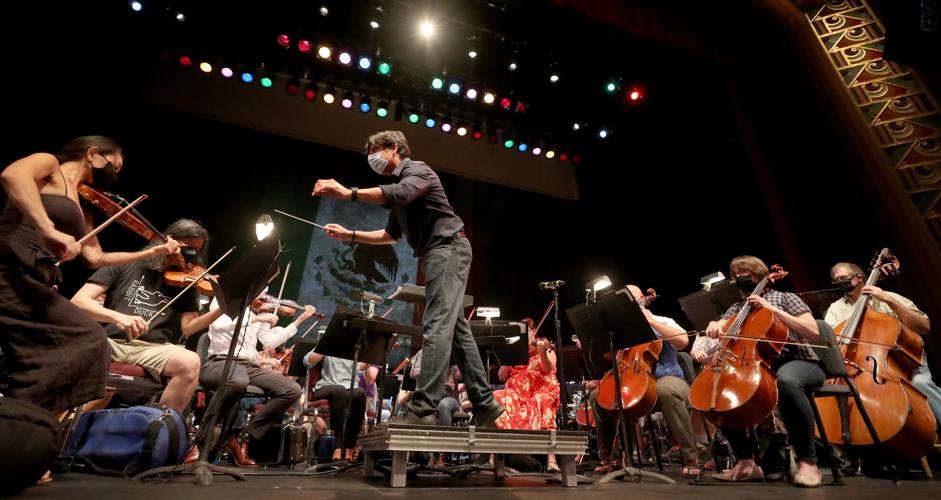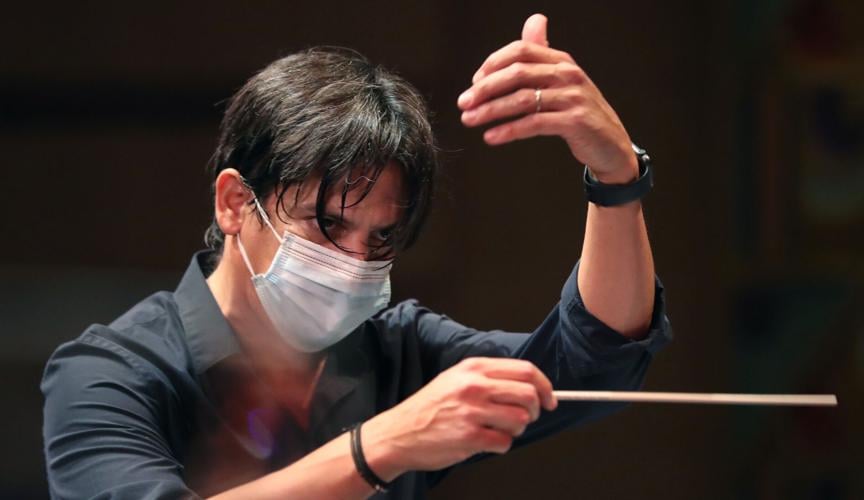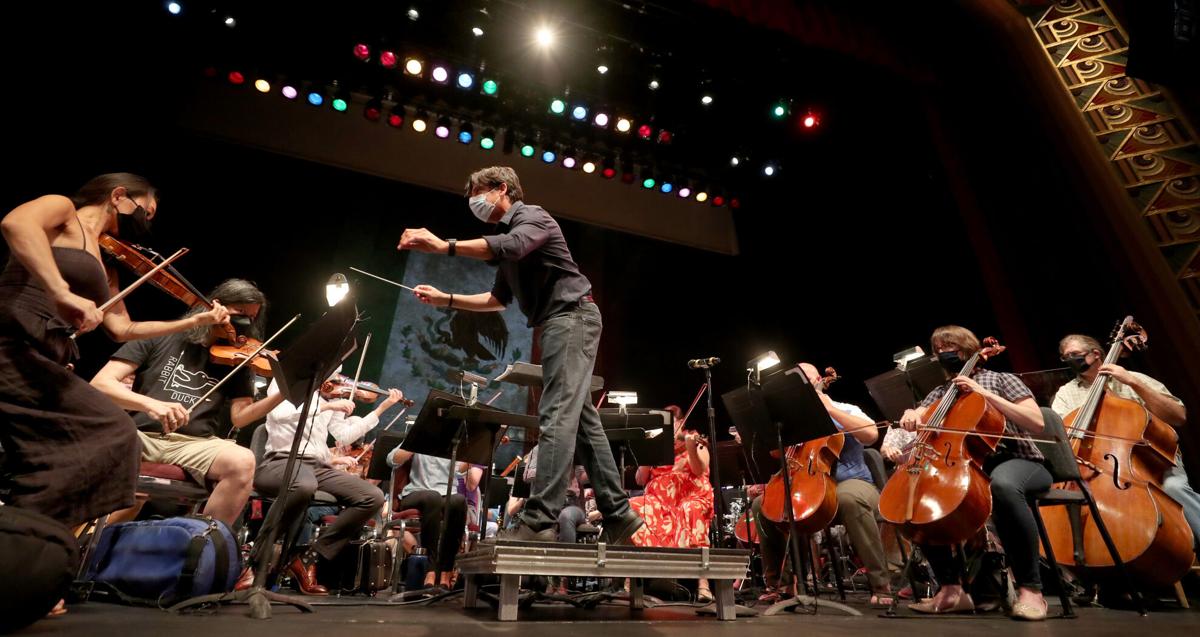After 18 months of pandemic exile in his native Spain and Italy, Tucson Symphony Orchestra Music Director José Luis Gomez is back.
Gomez arrived in Tucson on Sept. 11 minus his trademark ponytail and with a shiny wedding ring on his finger.
The Venezuelan-born conductor who spent the pandemic toggling between Spain and Italy married his longtime fiancé Federica Lombardi, a rising soprano on the world's opera stages, in September 2020.
Shortly after saying "I do," Gomez cut his hair, something the 43-year-old said he had wanted to do for some time.
“We got married and then I said, ‘After the wedding, you know I’m going to do this.’ She said fine, go ahead and see what happens," Gomez recalled of the conversation he had with Lombardi. "And when I got it cut, she said, ‘Oh, this is so much better!’”
Gomez's arrival here last week was the first time he has been back in Tucson since the coronavirus was declared a global pandemic in March 2020. Days after the orchestra announced it was cancelling the remainder of the 2019-20 season, Gomez left for Europe to rejoin Lombardi.
Eighteen months later, Gomez on Monday, Sept. 13, finally found himself where he wanted to be: standing before his orchestra, baton in hand, ready to pick up where they left off.
"We were all behind masks, smiling," Gomez said. "I couldn’t be happier and all the musicians were happy.”
The orchestra played the annual Mexican Independence Day concert at Fox Tucson Theatre on Sept. 15.
"It’s been 18 months since we got together as an orchestra, but right from the very beginning, it was there," Gomez said. "It was like nothing had happened, but no, you could tell that something happened because the energy was so positive. Finally we are able to do what we want and what we were actually born to do."
Throughout the pandemic, Gomez continued producing online content for his TSO audience, including virtual conversations and an interview series with TSO musicians and guest artists who were supposed to perform with the orchestra last season. The videos, broadcast on the orchestra's YouTube channel (youtube.com/user/TheTucsonSymphony), attracted anywhere from dozens of views to hundreds. Performances by TSO members including a recital by Concertmaster Lauren Roth in May 2020 routinely got 1,000 or more views.

Conductor Jose Luis Gomez works with the Tucson Symphony Orchestra during rehearsal for the Mexican Independence Bicentennial Concert.
But while the virtual events kept the orchestra engaged with the audience, Gomez, who guest conducted a handful of concerts in Europe over the summer, said there is nothing like the live experience.
The orchestra kicks off its 2021-22 season on Sept. 24 with the long-awaited return of violinist Lara St. John, who hasn't played with the orchestra since 2007. She will perform Piazzolla's "Four Seasons of Buenos Aires," a tango-inspired take on Vivaldi's "Four Seasons."
Gomez has programmed 33 concerts this season of repertoire that he says is the most diverse in the orchestra's 92-year history.
“We have great composers that unfortunately haven't been played in Tucson for the whole history of the orchestra," he said.
Among those composers is Florence Price, the first African-American woman to compose for symphony orchestra, and Chevalier de Sanit-Georges, a contemporary of Mozart who was the first composer of African descent.
The orchestra also is playing works by Peruvian composer Gabriela Lena Frank; the premier of Jonathan Leshnoff’s Piano Concerto with Joyce Yang that the orchestra co-commissioned; and a work composed by Tucson native Claire Thai, an internationally-recognized harpist and alumna of the TSO's prestigious Young Composers Project.
Other Tucson composers represented this season include Daniel Asia and Robert Muczynski.
"It really is a kaleidoscope of fantastic masters of music," said Gomez. "I believe the greatness of music is so diverse and universal.”
The TSO, which is taking up residence in a renovated Tucson Music Hall that includes improved restrooms, lobby area and new seats, is requiring audience members to show proof of vaccination or a negative COVID test before they will be admitted. The requirement follows the policy that Tucson's independent venues put in place Sept. 20 to help ensure audiences are protected against the COVID-19 virus.
“We want to ensure that we can continue playing concerts and we want to enforce protocols to ensure we can continue playing music and ensure the safety of the audience," Gomez said..






